Here’s the deal:
Infographic marketing in 2016 is still the most effective way to generate awareness online.
Sure, plenty of people have abused it.
Who hasn’t seen the influx of crappy infographics that peaked in 2012?
It seemed like every SEO Agency content marketing agency was publishing one for each one of their clients.
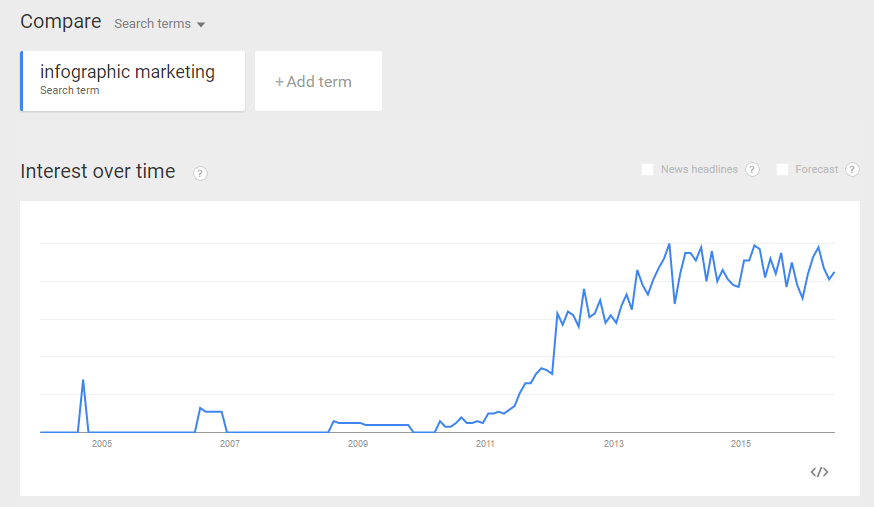
infographic marketing trends
Thankfully, the amount of terrible infographics is in decline.
Mainly because they provided zero ROI.
It’s easy to sell something shiny but it gets a lot harder when you have no results to show.
Clients start to ask awkward questions:
“So what has this infographic really done to support my bottom line?”
Since 2010, NeoMam has created and promoted over 1,000 infographics.
During all these years, we have learnt a few lessons:
1. Infographic Marketing Has To Be Part Of A Wider Strategy
The clients who get the most value from infographics are those that see them as part of a wider strategy to support search visibility.
True:
Infographics are the most powerful way to attract backlinks in 2016.
But if you just attract lots of links with no SEO strategy in place, you’re going to have a bad time.
Look at infographic marketing as one technique that supports goals for increased search visibility.
2. Say NO To Quantity. Aim For Quality.
This lesson can be applied to all content marketing formats:
It’s better to invest in one major piece of content than to try and get multiple campaigns out of the door.
One example is an interactive infographic we did back in 2012: 13 Reasons Why Your Brain Craves Infographics.
It took months to produce and was the only self-promo piece we produced all year around.
But the results paid off:
929 linking root domains, and counting.
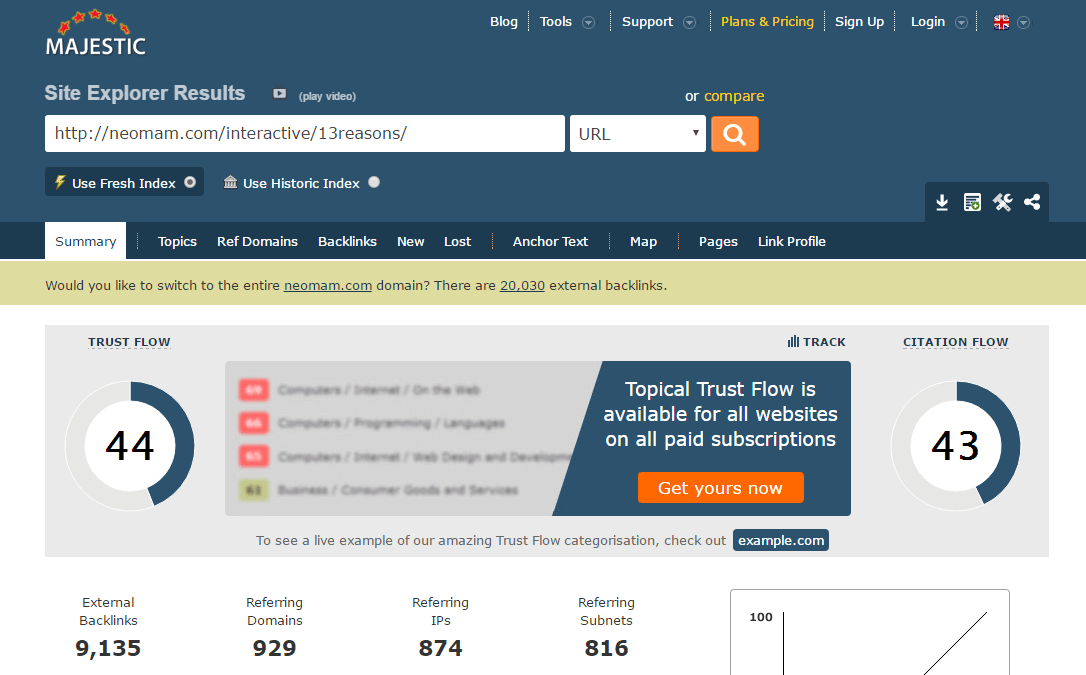
Nearly 1 million visits since it went live in 2012:
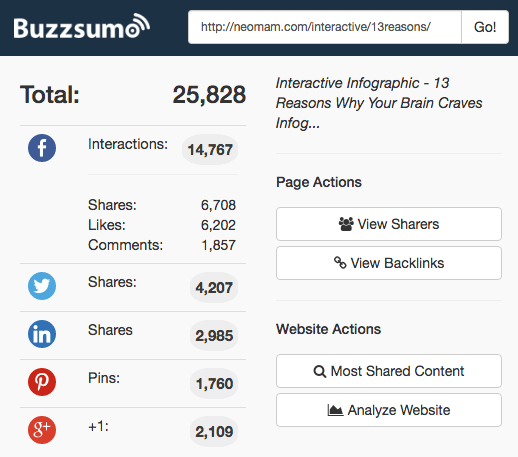
It was a big investment but it paid off and continues to pay off every single year.
One piece of content that will continue to drive links, traffic and email subscribers.
3. Support The Content With A Strong Promotion Strategy
Infographics need to be shared if you expect to see any return on your investment.
Creating something that looks great but just sits on your site unseen is a waste of time.
You need to combine production with a way to promote the content across the web.
At NeoMam we have found that a mix of influencer marketing, digital PR and blogger outreach is the most effective to get infographics featured in top tier media outlets.
Once you have produced an infographic you will need to know how to write an email that journalists will open – and that will make them take action.
I see too many good looking infographics that don’t achieve results and most of this is down to little or no promotion.
Why Infographics Should Be Part Of Your Content Marketing Strategy
Back in 2012, we produced a promotional infographic to help our clients explain to their leadership team why they should invest in the format.
Check out the samples below and let me know how you get on.
Why Do Infographics Work?
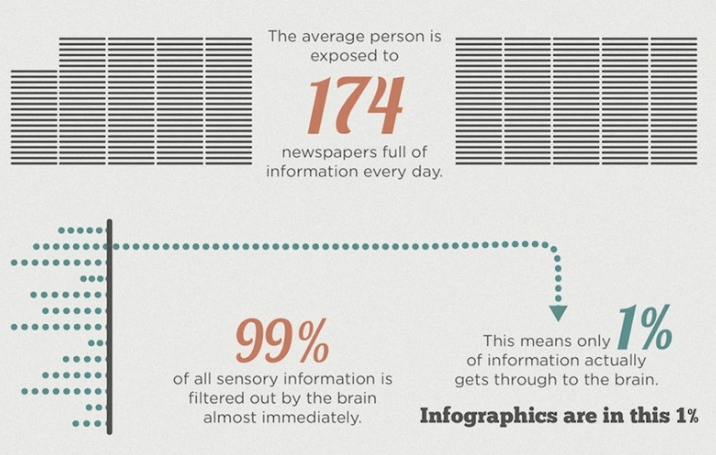
As a society, we are getting inundated with information.
One study suggests that the average person is exposed to 174 newspapers full of information every day!
Thankfully our brains filter 99% of that information.
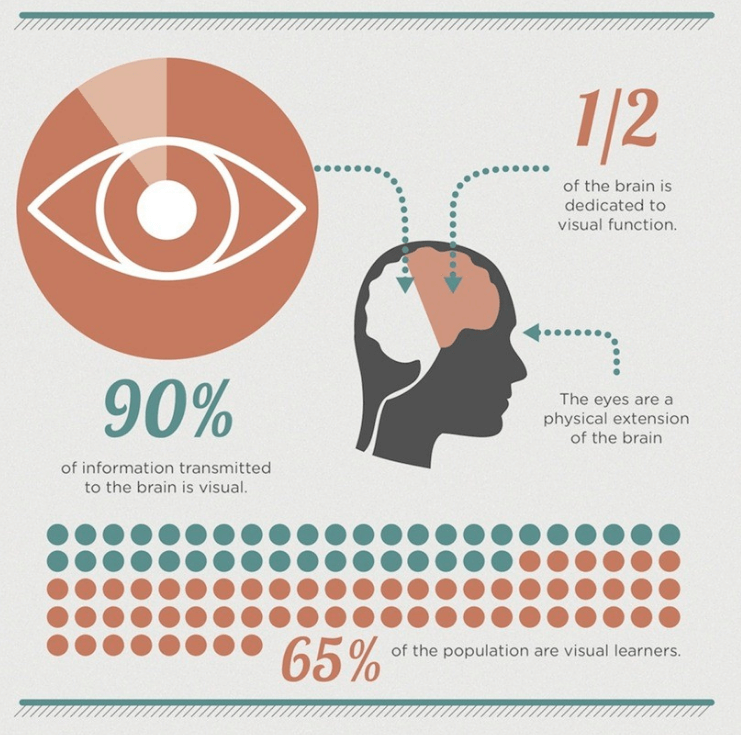
We are wired for visuals.
½ of your brain is dedicated to your visual function.
90% of the information transmitted to the brain is visual.
65% of of the entire population are visual learners.
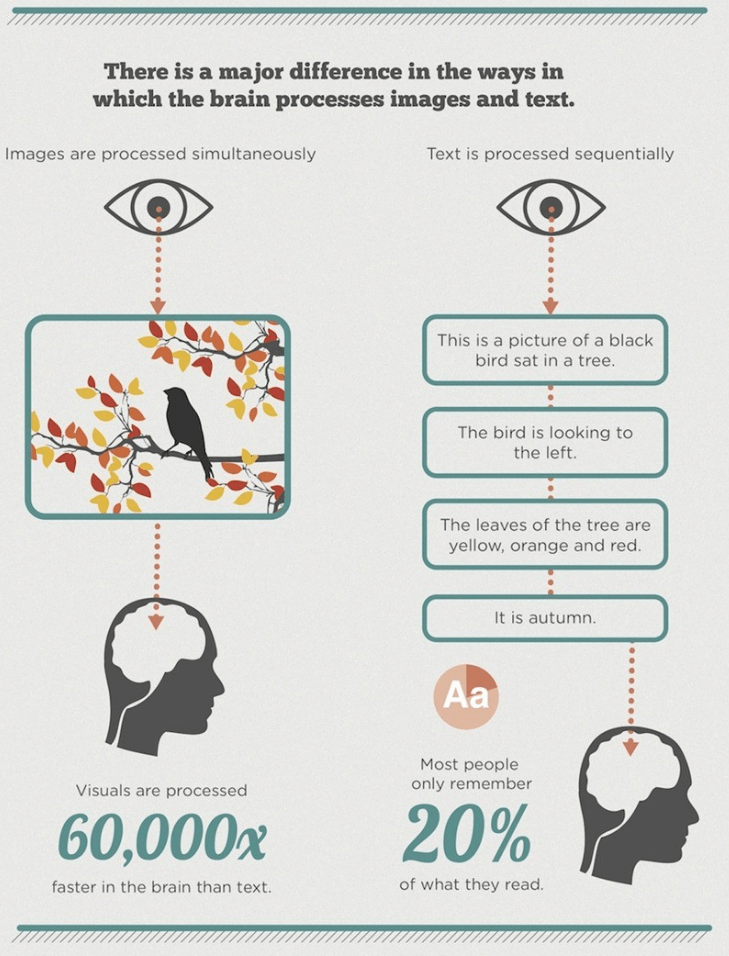
Our brains process images differently to visuals.
Visuals are processed in simultaneous, as this part of brain is relatively old in evolutionary terms.
As the text reading part of our brain is new, we need to process it sequentially which takes a lot longer.
A study suggests that we can get the sense of a visual scene in less than 1/10 of a second.
If you want any more reasons why you should give visual content marketing a chance, then be sure to check out our interactive infographic: https://neomam.com/interactive/13reasons
3 thoughts on “Why Do Infographics Make Great Marketing Tools”
Comments are closed.